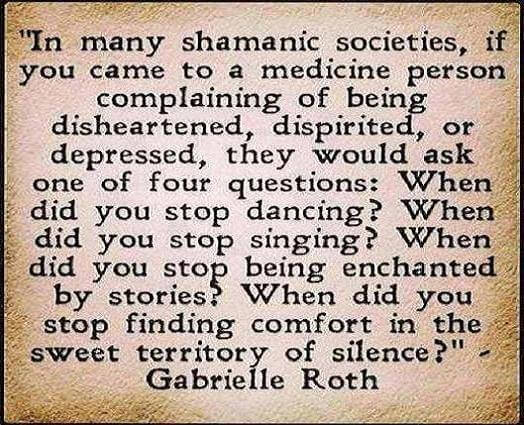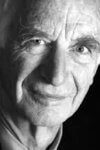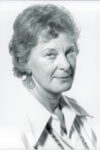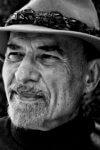
The image I chose for this page communicates much about my approach to my engagement with clients as a counselling psychologist in Switzerland. At first the issue might seem somewhat clouded, even though there is a solid bridge that leads to ‘the other side.’ When a process of coaching starts, when a client decides it is time to make the first steps on a new path (or to continue along an already familiar path), it is time for the two of us to start exploring what could possibly lie beyond the misty clouds. Which questions lie there? What are the options? Of what substances are the hurdles construed?
What, in essence, is the issue that needs a fresh look, a fresh approach? Which ‘facts’ of life could do with a new interpretation? Where, exactly, is someone stuck, or anxious about? How does anger express itself, and what is the story of that anger?
Sooner or later something seems to call us onto a particular path… this is what I must do, this is what I’ve got to have. This is who I am.
James Hillman
I look at psychological issues in people’s lives not as problems that need to be eradicated, but as challenges that need to be respected and understood. Beating our afflictions into submission is never a long-lasting solution; within them lie the keys to liberate ourselves from them. However, to find those keys it might be necessary to delve deeply and respectfully into our anger, our sadness, our stubbornness, and even into the sources of our joys, our serenity, humility and grace.
 Psychological health, personal growth and spiritual wholeness are hardly ever the result of campaigns and strategies of war and confrontation. The domains of mind, spirit and soul do not ask for more aggression, more conflict. These domains require sincerity, curiosity, assertiveness and the ability to distinguish our own shadows from our own strengths, and our darkness from our own compassion towards ourselves and others. Our emotional health is not only the result of hormones, neurotransmitters and brain structures but is highly influenced by our own ability to “make meaning”, to create and re-create the stories of our lives – to interpret and re-interpret our own reality. By re-interpreting our own reality, that reality itself responds by changing too.
Psychological health, personal growth and spiritual wholeness are hardly ever the result of campaigns and strategies of war and confrontation. The domains of mind, spirit and soul do not ask for more aggression, more conflict. These domains require sincerity, curiosity, assertiveness and the ability to distinguish our own shadows from our own strengths, and our darkness from our own compassion towards ourselves and others. Our emotional health is not only the result of hormones, neurotransmitters and brain structures but is highly influenced by our own ability to “make meaning”, to create and re-create the stories of our lives – to interpret and re-interpret our own reality. By re-interpreting our own reality, that reality itself responds by changing too.
It is this process of catching our own stories and becoming the authors of our own narratives again that I refer to as “story catching” – as we ‘catch’ ourselves repeating over and over the stories of our lives, we become aware that by changing words, by changing the meaning we attach to those words that we can re-author our interpretations of our lives. This – I have found – is one of the most empowering experiences anyone can undergo.
Personal growth, self-actualisation, individuation and healing: all of these happen outside of the counselling room, through our day-to-day interactions with others and with events that come our way. It comes about by trying new thoughts, new behaviour, new responses. It is aided by trying out new attitudes towards our bodies through yoga, meditation, exercise. It is nourished by new habits: creative interactions with ingredients for a meal, or by drawing and painting; by picking up a camera and observing the world as a photographer would. By purposefully and with an open mind browsing through a library or a book shop to seek food for the soul. By watching inspiring speakers.
Such changes, however, are best made in a gentle way. Small steps – one by one.
We can learn something new anytime we believe we can.
Virgina Satir
No person is an island, no one of us is an atom. We are part and parcel of a wider community, a world, a universe. What happens out there affects us, inside. Engaging with issues of mental health is, therefore, for me not limited to my interactions with clients. It also means that I seek to actively engage with matters of the world: “We need to work on the world so it will not be so oppressive,” said Hillman.
Counselling psychologist in Switzerland: what can I offer you?
When it comes to issues of identity, gender, race, sexual orientation and even to afflictions like depression, anxiety, trauma or shame: how we feel about ourselves is very often the result of expectations and requirements made upon us. Are we successful enough? Do we have the house, the spouse, the kids and the gadgets by which many others measure us? Is our attitude towards life and its treasures safe for “them” and their view of the world, or do my belief systems rattle their cages – and vice versa?
As an author, a volunteer, a humanitarian and – at times – an activist I interact with the world at large, with communities and with individuals because I am convinced that it is the task of each and all to play a constructive role in the world.
Life as a therapist is a life of service in which we daily transcend our personal wishes and turn our gaze toward the needs and growth of the other. We take pleasure not only in the growth of our patient but also in the ripple effect—the salutary influence our patients have upon those whom they touch in life.
Irvin D. Yalom
On a final note: counselling or coaching is far from merely touching on the hard and painful parts of life. Personal growth requires us to find a balance of life in which there is ample space for all thoughts and emotions to arise and to be experienced. Laughter and lightness make it much easier to also touch on sadness and heavy stuff.

 Sooner or later something seems to call us onto a particular path… this is what I must do, this is what I’ve got to have. This is who I am.
Sooner or later something seems to call us onto a particular path… this is what I must do, this is what I’ve got to have. This is who I am. We can learn something new anytime we believe we can.
We can learn something new anytime we believe we can. Life as a therapist is a life of service in which we daily transcend our personal wishes and turn our gaze toward the needs and growth of the other. We take pleasure not only in the growth of our patient but also in the ripple effect—the salutary influence our patients have upon those whom they touch in life.
Life as a therapist is a life of service in which we daily transcend our personal wishes and turn our gaze toward the needs and growth of the other. We take pleasure not only in the growth of our patient but also in the ripple effect—the salutary influence our patients have upon those whom they touch in life.


